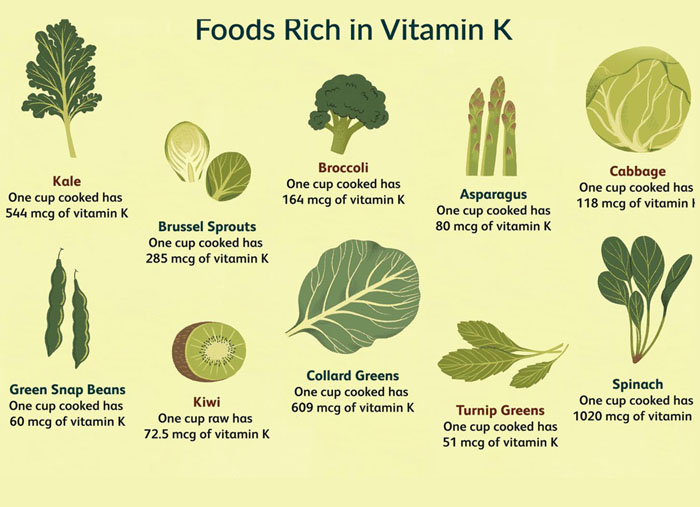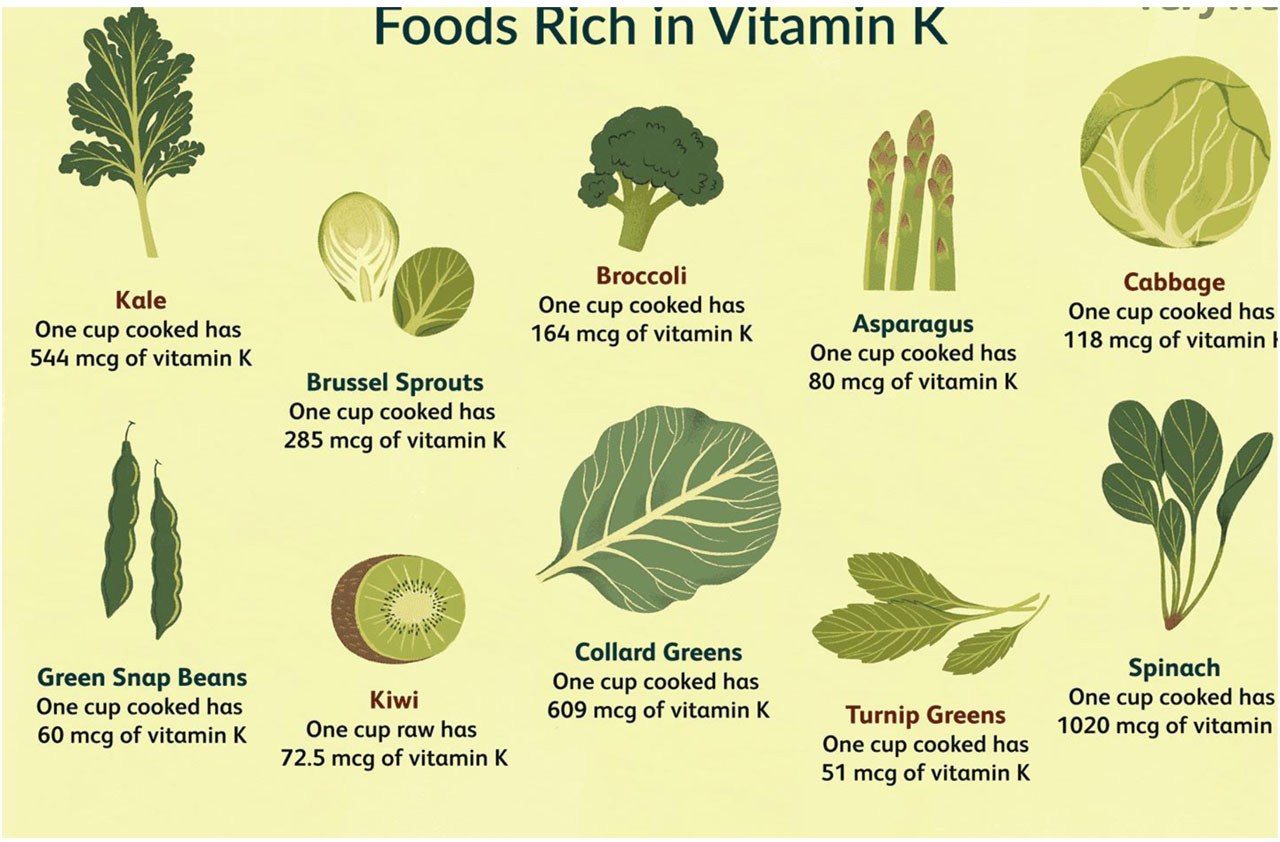- NEED HELP? CALL US NOW
- +919995411505
- [email protected]
VITAMIN K

Vitamin K is the only fat soluble vitamin with a specific coenzyme function. It is required for the production of blood clotting factors, essential for coagulation (in German–Koagulation; hence the name K for this vitamin).
Chemistry
- Vitamin K exists in different forms.
- Vitamin K1 (phylloquinone) is present in plants. Vitamin K2 (menaquinone) is produced by the intestinal bacteria and also found in animals.
- Vitamin K3 (menadione) is a synthetic form. All the three vitamins (K1, K2, K3) are naphthoquinone derivatives.
- Isoprenoid side chain is present in vitamins K1 and K2.
- The three vitamins are stable to heat. Their activity is, however, lost by oxidizing agents, irradiation, strong acids and alkalies.
Absorption, transport and storage
- Vitamin K is taken in the diet or synthesized by the intestinal bacteria.
- Its absorption takes place along with fat (chylomicrons) and is dependent on bile salts.
- Vitamin K is transported along with LDL and is stored mainly in liver and, to a lesser extent, in other tissues.
Biochemical functions
- The functions of vitamin K are concerned with blood clotting process.
- It brings about the posttranslational (after protein biosynthesis in the cell) modification of certain blood clotting factors.
- The clotting factors II (prothrombin), VII, IX and X are synthesized as inactive precursors (zymogens) in the liver.
- Vitamin K acts as a coenzyme for the carboxylation of glutamic acid residues present in the proteins and this reaction is catalysed by a carboxylase (microsomal).
- It involves the conversion of glutamate (Glu) to J-carboxyglutamate (Gla) and requires vitamin K, O2 and CO2
- The formation of J-carboxyglutamate is inhibited by dicumarol, an anticoagulant found in spoilt sweet clover.
- Warfarin is a synthetic analogue that can inhibit vitamin K action.
- Vitamin K is also required for the carboxylation of glutamic acid residues of osteocalcin, a calcium binding protein present in the bone.
- The mechanism of carboxylation is not fully understood. It is known that a 2,3-epoxide derivative of vitamin K is formed as an intermediate during the course of the reaction.
- Dicumarol inhibits the enzyme (reductase) that converts epoxide to active vitamin K.
Recommended dietary allowance (RDA)
- Strictly speaking, there is no RDA for vitamin K, since it can be adequately synthesized in the gut.
- It is however, recommended that half of the body requirement is provided in the diet, while the other half is met from the bacterial synthesis.
- Accordingly, the suggested RDA for an adult is 70-140 Pg/day.
Dietary sources
- Cabbage, cauliflower, tomatoes, alfa alfa, spinach and other green vegetables are good sources. It is also present in egg yolk, meat, liver, cheese and dairy products.

Related posts
April 10, 2025
April 9, 2025
April 4, 2025




